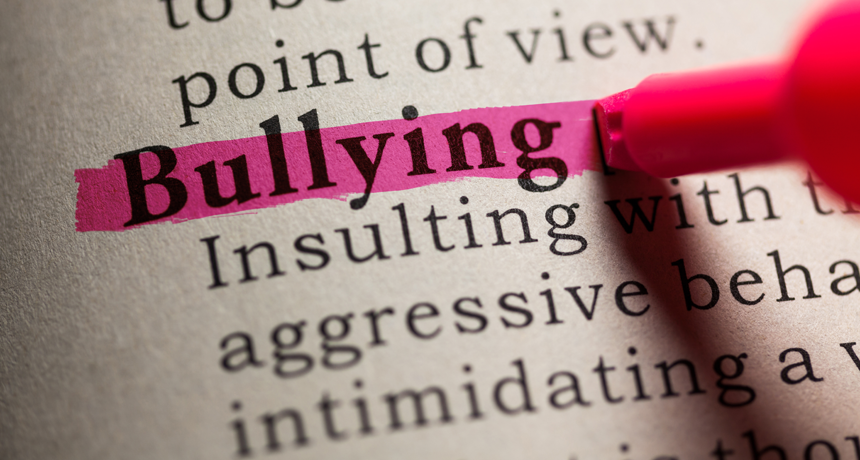Questions for ‘Bullying hurts — but peer support really helps’

Teasing or insults aren’t considered “bullying” unless the taunts reflect a power struggle.
Devonyu/istockphoto

Teasing or insults aren’t considered “bullying” unless the taunts reflect a power struggle.
Devonyu/istockphoto
Register to access:
An error occurred. Please try again.
Already Registered? Enter your e-mail address above.